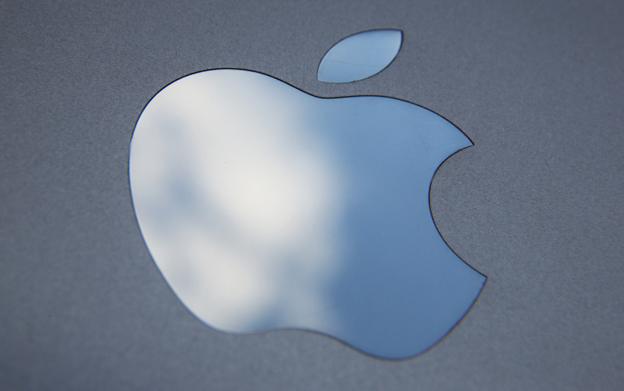Tax and tech
- Published
- comments

Here are two indisputable truths. Governments love to cosy up to technology companies. And technology companies - much like any other business - hate paying tax. So the relationship between the two can be summed up as a Facebook status - it's complicated.
This morning we have learned the extraordinary lengths governments can go to in order to persuade a giant American company to do business in its territory. The European Commission has published a letter setting out the reasons for its investigation into a tax deal between Ireland and Apple.
We hear how an arrangement was reached in 1990 which saw Apple channelling much of its international revenue through Ireland. The way in which Ireland's government then calculated Apple's Irish profits looks to anyone who isn't an accountant like a case of holding your finger up in the air.
In a document submitted by the Irish government, a representative of Apple admits to the revenue that there is "no scientific basis" for one of the figures used in the calculations. "However," the document continues, "the figure was of such magnitude that he hoped it would be seen to be a bona-fide proposal."
Ireland did sign up to that deal, and another in 2007, and the result has been that the technology firm appears to have paid minimal tax as its profits soared following the introduction of the iPhone. The Commission's letter suggests that in 2012, when Apple's international revenues amounted to $64bn (£39.5bn), the company paid under 10m euros (£7.7m) in tax in Ireland.
The European Commission suspects that the tax deal amounts to state aid, which was not available to other companies and could, therefore, be illegal. The Irish government and Apple have strongly denied that there was any special arrangement.
The investigation has quite some way to go but if the Commission finds against Ireland, Apple could have to pay back some tax. Mind you, one Irish economist says and the most Apple could have to pay is $30m - small change to a company with a cash pile of around $165bn.
It is, however, worth questioning just how good a deal Ireland has got over the years from Apple. Yes, there are 5,000 jobs, but in more than 30 years in the country the company has never brought any research and development work there, and very little manufacturing - indeed all of its R&D is done in the United States.
Other countries may be cheering on this investigation. There is growing resentment at the way technology firms are benefiting from a race to the bottom in corporate tax rates, diverting their huge revenues to places like Ireland or Luxembourg.
Note the change in tone from the UK government, once so keen to hobnob with the likes of Google. On Monday, Chancellor George Osborne announced what is already being dubbed a Google tax - a plan to force technology companies to reveal what profits they make in Britain and pay tax on them here.
Just how that will work, we will have to wait until the Autumn statement to find out. Apple, for instance, paid just £11.4m ($18.5m) in corporation tax in 2013 after declaring UK revenues of just £100m. Given the company has 37 UK stores, and the average Apple store took over £30m last year, you can see how much of that revenue is being diverted through Ireland.
So, prepare for some testing times in the relationship between the Treasury and the tech giants. Meanwhile, though, the government still wants to roll out the welcome mat for fast-growing sectors.
Another less noticed announcement out of the Conservative conference was a new inquiry into the so-called "sharing economy"- companies like AirBnB which enable people to share under-used resources like spare rooms and make money. The inquiry will look at the economic potential of this sector and "investigate the main regulatory and policy issues" - which will presumably include how these companies are taxed.
So which independent figure is to chair this review? The chief executive of a sharing economy business. Like politicians everywhere, the UK government is torn between enthusing over new technology - and demanding a fair share of its profits.